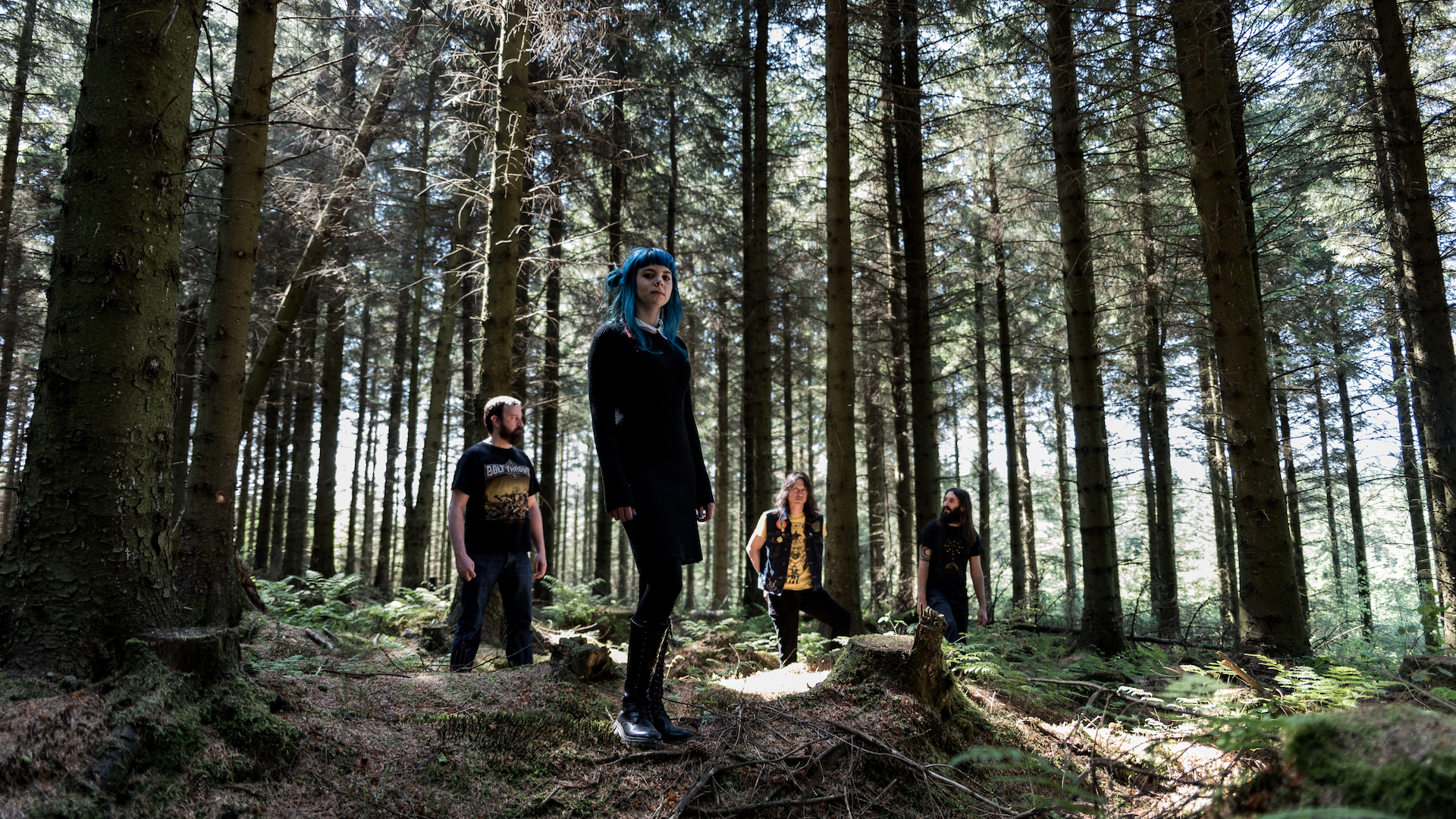Just nine months after the release of their debut record, Noeth Ac Anoeth, experimental Welsh doom outfit Mammoth Weed Wizard Bastard (yes, really!) are back with its follow-up. The six extraordinary and experimental tracks of Y Proffwyd Dwyll – which translates as ‘The False Prophet’ – demonstrate both the overarching musical ambition and the drive and determination of this Wrexham-based four-piece. That’s partly a result of their long-standing history – although the band have only been together a couple of years, founding members Paul Davies (guitar) and James ‘Carrat’ Carrington (drums) go back much further.
“We didn’t really plan any kind of career path,” says guitarist Paul Davies. “I’ve been playing with Carrat for about 10 years. Even when we weren’t in this band, we were still playing and writing, and we just decided to do something really heavy one day. Through trials and tribulations, some hassle, some arguments, some swearing, some small fights, we sat in the practice room and came up with something we think is pretty cool.”
- Mammoth Weed Wizard Bastard stream new track Y Proffwyd Dwyll
- The 10 best doom albums according to Mammoth Weed Wizard Bastard
- Bong: Stoner Rock
- The 10 best stoner metal songs
That something was the half hour track Nachthexen, which would later become the centre of Noeth Ac Anoeth, a gripping, epic song of twists and turns that saw the band – completed by bassist/vocalist Jessica Ball and guitarist Wez Leon – played with the idea of what doom is, pushing and prodding its boundaries by steadfastly following its own path.
“A lot of doom – no disrespect to a lot of modern doom bands – kind of sounds the same,” Davies says. “But we’ve had this idea in mind for a long time of what we wanted to do, and it’s a vision that’s fallen into this thing where people say it’s doom, which is cool, but it’s also as much about bringing together all the different influences that we enjoy than trying to adhere to the doom vibe.”
That’s something that actually got the band a lot of exposure, and which they’ve focussed on even more with this new record. Incredibly catchy and melodic in some places, dark and impenetrable in others, it sees them feed off that attention in the most positive way, infusing their songs with melodic flourishes, uplifting vocals and nuanced classical leanings. Of course, doom is never going to be the most profitable of genres, but the response to their unique vision suggests it could actually become sustainable if they keep doing it and just stay true to their original intentions.
“We weren’t expecting anything to come of that Nachthexen when we wrote it,” says Carrat, “but the shock of getting all that attention from it has compelled us to really think about taking it somewhere.”
“Doom is quite a small part of the heavy metal genre,” adds Davies, “so we’re definitely not crusaders, but at the same time we want to see how far we can take it and get doom-y music recognised with a larger audience.”
That’s already started happening to the band more than they ever thought it would. Mostly, that’s because of the actual music they make, but they are also aware that people are drawn to their rather cumbersome, ridiculous name.
“A lot of people have got a lot of opinions on our name,” chuckles Davies. “We did really want to come up with a huge name. We never planned to have any music released or have any kind of career, so we just thought, ‘Let’s have a huge name!’ And whether you love the name or hate the name, it’s us. We couldn’t do this music and have a small-time name. A lot of people have been turned off by it, but at the end of the day, the music is about us and what we want to do, so we don’t really care. It’s the name we chose, so if you’re on board, good. And if you’re not, there’s loads of other bands with cool names and less words, so go listen to them.”
